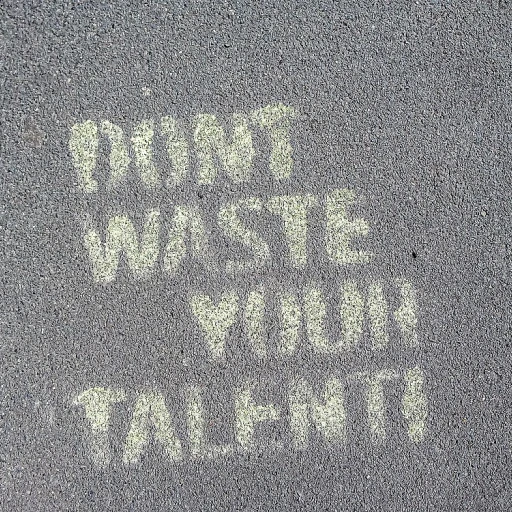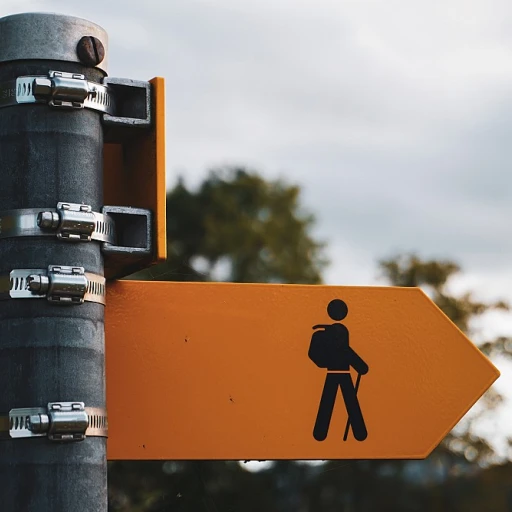Understanding Court Review Processes
Comprehending Review Mechanisms in the Judicial System
When a trial court issues a decision, it doesn't signify the end of the journey for many cases. Understanding how court decisions are evaluated for errors is crucial, especially for attorneys advising clients on potential appeals. The appellate process, involving both appellate courts and often the supreme court, serves as a framework that permits courts to examine whether a trial court’s decision will stand up under closer scrutiny.
The review process involves distinct steps and relies on several principles, which attorneys meticulously leverage. Initially, a notice of appeal must be filed, an action that sets the stage for further judicial analysis. The court relies on the record from the lower court to determine if there were significant errors that necessitate a reversal or remand.
The Role of Appellate Courts
In the United States, both federal and state appellate courts manage these reviews with the aim of maintaining judicial integrity. These courts evaluate whether the trial court's decision aligned with the law and whether crucial errors affected the outcome. There is a standard of review that appellate courts adhere to, influencing how errors of law, such as jury instructions or evidentiary rulings, are perceived and addressed.
Criminal appeals often necessitate a review of the trial court's adherence to legal standards. One common method is the 'de novo' review, where appellate courts fully assess legal conclusions without deference to the trial court. The balance between correcting genuine errors and respecting the initial court verdict is delicate and fundamental to protecting the legal principles in every case.
Supreme Court's Involvement
The supreme court, especially in pivotal cases, plays a vital role in setting precedent within the judicial framework. While not all cases reach this level, the decisions made here can significantly influence how background checks and appeals are perceived. These high-stakes reviews often clarify the standards applicable in trial and appellate courts across the country.
The intricacy of court appeal processes, ensuring judicial reviews are precise, highlights a broader impact on background checks. Errors in these judicial decisions, whether at the trial or appellate level, can lead to substantial implications, influencing how background checks are conducted and perceived across different sectors. Understanding
can you pass a background check with a misdemeanor following a court’s review process often requires navigating the nuances of these judicial verdicts.
Impact of Court Decisions on Background Checks
Influence of Judicial Decisions on Background Screening Processes
The ripple effects of court decisions on background check procedures cannot be underestimated. In the United States, when a court—whether it's a trial court or a higher appellate court—renders a decision, it sets a precedent that can directly impact how background checks are carried out. This becomes especially pertinent in cases involving criminal appeals where outcomes can alter the accessibility of certain records during employment vetting.
Decisions at various levels, such as those by the supreme court or a federal district court, can influence background check protocols, determining what information is legally permissible for disclosure. An appeals court, through its standard review, might dictate the extent to which specific trial decisions are scrutinized for potential errors.
Errors in trial court decisions frequently lead to appeals filed urging a re-evaluation. Such outcomes can potentially seal or reopen certain records previously deemed confidential, thus affecting their visibility on background checks. Appeals often hinge on the presentation of the case through oral argument, where attorneys argue that the lower court's decision was flawed or overlooked critical legal standards.
When a lower court's decision is overturned or modified, it can lead to significant changes in how similar background checks are conducted in the future. The notice of appeal and even the petition for rehearing play pivotal roles in shaping these legal landscapes. For instance, decisions surrounding cases about what constitutes a misdemeanor may shift the criteria for how such offenses are considered during employment screenings.
To provide a deeper understanding of these impacts, explore whether having a misdemeanor might affect the outcome of your background check at
this comprehensive guide.
In summary, judicial decisions carry substantial weight in shaping the framework and execution of background checks, continually redefining the boundaries within which they operate.
Common Errors in Trial Court Decisions
Identifying Frequent Pitfalls in Judicial Decisions
Errors in trial court decisions can significantly impact the outcome of cases as well as subsequent backgrounds checks. These errors often become apparent only when cases reach appellate courts for review. Understanding these common pitfalls is crucial for attorneys to better navigate the complexity of the legal system and ensure justice is served.
- Procedural Errors: One of the most prevalent issues arises from procedural mistakes. These could manifest as improper jury instructions, incorrect admission or exclusion of evidence, or failure to follow legal procedures. Such errors can significantly impact the standard of review used by appellate courts, affecting the outcome of appeals.
- Misapplication of Law: Trial courts sometimes misapply or misunderstand the law, which leads to incorrect judgments. Incorrect interpretation of statutes or precedence set by higher courts, such as the Supreme Court, often necessitates appellate intervention. The appellate process enables rectification of law misapplications to maintain judicial integrity.
- Insufficient Findings and Conclusions: Lower courts are required to provide detailed findings and conclusions in their decisions. Failure to do so can lead to reversals or remands by the appellate courts, as their responsibility is to ensure that every decision is backed by a clear and valid legal rationale. Courts often assess whether the record filed supports the decision lower courts have made.
- Inadequate Consideration of Evidence: Errors can also stem from the trial court's treatment of evidence, whether it's misinterpretation or disregard of critical pieces. This is where petitions for rehearing or notice appeals come into play, as appellate courts review whether the decision rests on a substantial evidentiary foundation.
In the broader context of background checks, these errors can lead to incomplete or inaccurate records, affecting impact assessments in employment or legal standings. As judicial decisions evolve through appeals and are corrected, background check processes rely on accurate judicial records for effective evaluations.
Understanding the retail procurement operating model provides further insights into the operations that may interact with legal assessments.
Technological Advances in Background Checks
Technological Advancements Shaping Background Checks
In recent years, the field of background checks has seen significant transformation due to continuous technological advancements. This evolution not only impacts how courts and institutions manage and review these checks but also enhances the precision, speed, and scope at which background information is processed.
The rise of sophisticated algorithms and AI-powered platforms are at the forefront of these advancements. These tools enable faster data retrieval and analysis, ensuring a more comprehensive evaluation of a subject's background. For instance, databases that compile various public records across federal, state, and local layers can swiftly cross-reference data, making the appellate courts' task of reviewing standards of failure or success in background checks more efficient.
Furthermore, technology facilitates integration across different sectors. For example, criminal appeals and juvenile court cases require a meticulous examination of past records. Automated systems significantly reduce the likelihood of human error, ensuring trial courts and supreme court decisions are based on complete and accurate information.
Another crucial advancement is cloud-based storage and blockchain technology. They offer secure data handling and storage, which is vital considering the sensitive nature of personal background data. This security is crucial in maintaining the trust of both individuals and institutions involved in these checks.
As the technology behind background checks becomes more refined, it's pivotal for all stakeholders, including lower courts, attorneys, and appellate courts, to stay updated on these developments. Embracing these technologies can lead to a notable increase in the efficiency and reliability of background check processes, ensuring that trial decisions made by lower courts and reviewed by higher courts withstand the test of time and scrutiny. This continuous evolution also hints at future trends, where seamless integration and advanced analytics will redefine the landscape of background checks even further.
Legal Challenges in Background Checks
Challenges of Legal Complexities in Background Checks
Background checks, though essential in various sectors, are interwoven with numerous legal challenges that need careful navigation. As cases are brought to trial or maneuver through the appellate court system, the subsequent court decisions can significantly impact the protocols and results of background checks.
- Privacy Concerns: Federal and state laws mandate stringent standards to protect individual privacy during background checks. However, discrepancies in adherence can lead to legal scrutiny, particularly when a trial court decision raises questions about unauthorized access or misuse of information.
- Disparate Impact: A vital legal concept is ensuring nondiscriminatory practices. If a background check process disproportionately affects certain groups, it can lead to scrutiny under the appellate review process and possibly overturning of lower court decisions. This aspect has been a subject of attention in various court appeals.
- Compliance with Regulations: Employers and organizations must stay aligned with evolving federal and state standards regarding background checks. Non-compliance might result in legal challenges and could be detrimental, especially if brought to the appellate courts, which review the trial court records meticulously.
- Fair Credit Reporting Act (FCRA) Considerations: The FCRA provides guidelines that must be respected during background checks. Any case filed that hints at violations will invite careful appellate court consideration. The courts aim to ensure a fair standard, especially in contexts where the Supreme Court has set influential precedents.
As the legal landscape changes, both practitioners and service providers in the background check industry must remain vigilant and informed. This evolving dynamic emphasizes a robust understanding of the law as articulated by various court levels, from the juvenile court to the supreme court, to ensure compliance and anticipate future hurdles.
Future Trends in Background Checks
Emerging Trends in Background Check Practices
As we look toward the future, background check trends are experiencing transformative changes, influenced by legal decisions, technological advancements, and evolving standards across the court system. Courts, from the trial level up to the Supreme Court, play a critical role in shaping these trends through their decisions, oversight, and the establishment of standards of review.
Technological innovations are rapidly changing the landscape of background checks. With the integration of AI and machine learning, the process is becoming more efficient and accurate. These technologies are being used to sift through massive amounts of data, helping to identify discrepancies or patterns that manual checks might miss. However, their use must be balanced with legal and ethical considerations, especially as court appeals continue to shed light on privacy concerns and the potential for bias in automated systems.
Legal challenges remain a pivotal aspect of background checks. With each court decision, whether from a lower court or an appellate court, new precedents are established, influencing how background checks are conducted and interpreted. Courts are increasingly faced with the challenge of balancing the need for comprehensive checks with the protection of individual rights, an issue that will continue to evolve in light of ongoing legal debates.
Moreover, as criminal appeals and district court rulings highlight mistakes made in trial court decisions, there is a growing call for more standardized procedures across jurisdictions. This includes appeals made via a petition for rehearing where the standard of review applied can lead to reinterpretations of law that impact how records are handled in background checks.
Court decisions across the United States, including those made by supreme, appellate, and juvenile courts, emphasize the import of protecting sensitive information without compromising the accountability and safety that thorough background checks are designed to ensure. The future holds potential for these processes to become more streamlined and aligned with federal guidelines, reducing discrepancies across state lines.
Overall, the evolving landscape of background checks is marked by a push for technological integration and a heightened focus on legal nuance, ensuring that background checks are as reliable and fair as they are comprehensive.














